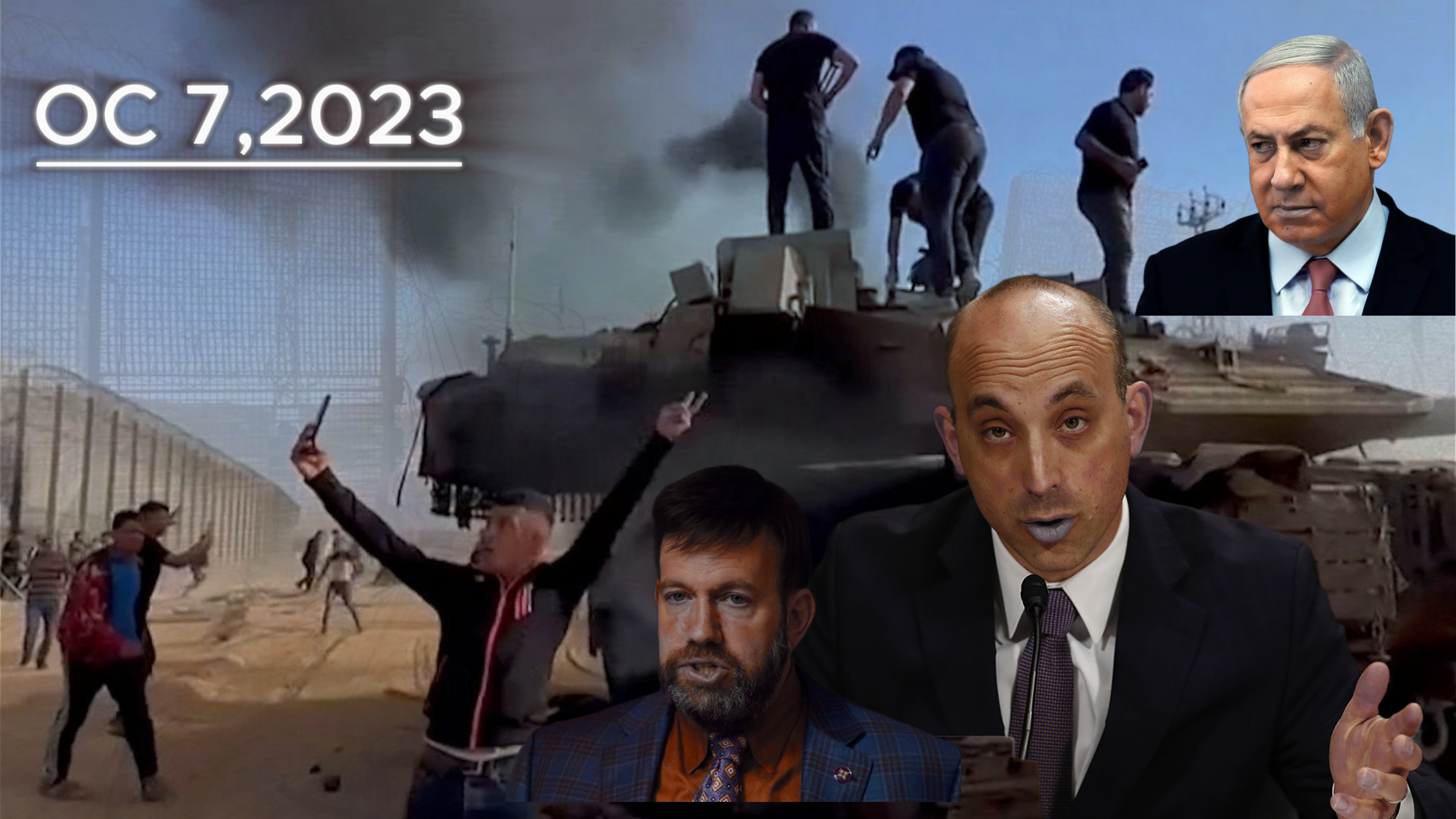On October 7, 2023, at approximately 6:30 a.m. Israel time, Hamas launched a meticulously coordinated assault (Al Aqsa Flood) that would reverberate across global headlines and reshape perceptions of Israel’s vaunted military and intelligence prowess. The attack began with a staggering barrage of 2,500 to 5,000 rockets, overwhelming Israel’s Iron Dome defense system. This was followed by audacious ground incursions, with Hamas militants breaching the Gaza border fence at over 100 points using explosives, drones, bulldozers, motorcycles, trucks, and even paragliders. The world watched, stunned, as the first footage to emerge from the attack was Hamas fighters pulling an Israeli soldier from a burning high-tech tank, having bulldozed through Israel’s heavily fortified “smart wall”—a barrier equipped with AI sensors and automated turrets. This brazen display of low-tech ingenuity against a high-tech Goliath left militaries, media, and the global public in awe.
Hamas’ tactics were so striking that RT reported they would be “taught in Russia’s military academies” for their innovative use of drones, breaches, and incursions. Khaled Mashal, former Hamas chairman, claimed that Russian officials noted the operation’s significance, with some even requesting training from Hamas for Russian and Chinese forces. The mainstream media, initially captivated by the audacity, described the attack in terms like “stunning” and “daring.” CNN’s live updates on October 7 called it a “stunning surprise attack,” with anchor Wolf Blitzer emphasizing its “complete tactical surprise” that left Israeli officials “flat-footed.” MSNBC’s Morning Joe echoed this, labeling the incursion a “stunning breach” that “blindsided” Israel’s elite intelligence agencies—Mossad, Shin Bet, and Aman—previously revered for feats like Stuxnet. CNN analysts likened the breach to a “Pearl Harbor moment,” noting how Hamas’ multi-domain tactics (land, air, sea) “shattered Israel’s sense of invincibility.” U.S. intelligence sources, quoted by CNN, admitted, “We received no intelligence that Hamas was preparing to attack,” a testament of how Hamas outsmarted not only Israel’s security agencies and systems, but also their allies, the Americans.
The Humiliation and the Reframing
The October 7 attack was a profound humiliation for Israel, exposing vulnerabilities in a military and intelligence apparatus long regarded as the gold standard. For days, global media narratives focused on this tactical shock. But by October 10-11, the narrative shifted dramatically—not organically, but through a calculated campaign. According to a detailed report by The Grayzone, American pollster Frank Luntz, commissioned by Israel’s Hasbara and Netanyahu’s office, conducted polling to reframe the attack. Luntz’s findings, shared with Israeli officials, emphasized pivoting from Hamas’ tactical brilliance to portraying their actions as “savagery” and “Nazi-like atrocities,” invoking the “biggest killing of Jews since the Holocaust.” This reframing aimed to sway American public opinion, which initially marveled at Hamas’ audacity. The Grayzone revealed that Luntz’s strategy involved saturating media with emotionally charged imagery and narratives, redirecting focus from Israel’s intelligence failures to Hamas’ alleged barbarism. Netanyahu, notably silent until October 11, 2023, emerged to amplify this narrative, leveraging Israel’s PR machine to reshape global perceptions.
The Anti-Defamation League’s Jonathan Greenblatt spearheaded this media blitz. On October 10, Greenblatt clashed with CNN’s Becky Anderson for describing the attack as “spectacular.” Anderson ended the phone interview abruptly, leaving Greenblatt fuming. He later called into another CNN segment, only to be cut off mid-rant by a different anchor. Both anchors reportedly faced internal repercussions, disappearing from air for weeks. MSNBC’s Mahdi Hasan was fired, and Ayman Mohyeldin suspended, for failing to adopt the new narrative swiftly. By mid-October, the media landscape was dominated by emotionally charged reporting, framing Hamas’ actions as pure savagery while sidelining discussions of Israel’s vulnerabilities.
Israel’s Vicious Response to Restore Deterrence
Having lost its aura of impregnability, Israel launched a ferocious campaign to restore its deterrence, both in perception and reality. This began with a genocidal assault on Gaza, including the wholesale destruction of refugee camps and entire neighborhoods, such as Rafah, using massive U.S.-supplied bombs. Thousands of women and children perished in these attacks, which Israel justified as necessary to reassert its dominance. When this failed to fully restore its fearsome image, Israel escalated with pager terrorism in Lebanon, orchestrating explosions that killed and maimed civilians, including children. The New York Times framed these acts as a “masterclass” in restoring deterrence, emphasizing the operation’s clandestine nature over its brutality. The media narrative insisted that the shock value of these attacks, even to Hezbollah, reestablished Israel’s psychological edge.
Yet, these moves backfired. The destruction of Gaza and the pager attacks drew comparisons to ISIS and Al Qaeda, portraying Israel as vindictive and weak rather than invincible. Among Israelis, particularly the ultra-religious, the October 7 breach fueled fears that God had abandoned them, undermining the “chosen people” mythos. ‘Operation Rising Lion,’ targeting Iran, marked a partial success. Israel’s strikes in Iran, executed with precision in the first two days, were lauded by media as a return to Mossad’s fearsome reputation. Israelis began to re-embrace their Midrashic war tales, bolstered by this operation’s perceived success.
A Shattered Mythos
Despite these efforts, the pre-October 7 image of an invincible Israel proved elusive. The world no longer saw a formidable, untouchable state but a terrorist regime resorting to desperate, heinous genocidal acts. The initial footage of Hamas’ audacious breach—fighters in flip-flops outwitting a high-tech military— two years ago remains etched in global consciousness. Israel’s genocidal tactics and terrorist ploys failed to erase the humiliation, instead cementing a perception of cruelty and fragility. As the Gaza genocide continues, justified by Israel as a means to restore deterrence, the world watches a rogue state grappling with its shattered mythos, unable to reclaim the invincibility it once projected.
